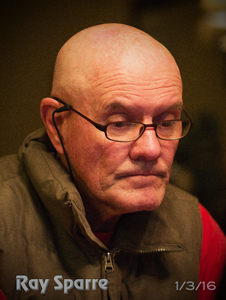
Hello folks.
It’s late. I can hardly believe I’m still awake. But I won’t be for long.
Incidentally I did an old man jog this morning and felt OK. Finally. My tree falling job was put on hold. I think it will happen tomorrow. And so will a dental appointment.
Good night. Blessings. Ray.
Isn’t that kind of a bummer?! Here was this wonderful specimen of a Christian saint in her prime and—yet she gets sick and dies! It doesn’t seem right! Why would a good God allow such an unfair thing to happen? Well, for one thing, this really is a fallen world where sickness happens and, one way or another, everyone dies.
Just prior to this sensational raising of Tabitha from being stone cold dead, Peter was used in the sensational healing of Aeneas—paralyzed and bedridden for 8 years. In fact, it appears that Peter’s burst of fame surrounding that healing was what prompted his being urgently sent for by the friends of Tabitha. Perhaps they reasoned that if Peter was instrumental in such a remarkable healing in Lydda, maybe he could be instrumental in raising someone to life who was fresh dead here in Joppa. Whatever the case, Peter was called for, and he came. About 10 minutes after arriving (my guess), Tabitha was no longer dead. She suddenly became a healthy, living, breathing person again. By Peter’s power? Nope. Or because he used the right prayer formula? I don’t think so. It’s clear to me that God was doing something very special here. And what He was doing was very effectively achieving His purposes. As evidence, following the healing at Lydda, it says, “And when all the people of Lydda and Sharon saw him (Aeneas—after his healing), they became believers in the Lord” (v. 35, TPT). Also, after Tabitha’s resurrection it says, “The news spread all over the city of Joppa, and many believed in the Lord” (v.42, TPT).
Just out of curiosity I wonder how long Tabitha lived following her resurrection? Somewhere along the line she had to get old and die—again. I also wonder how long Aeneas lived following his marvelous healing? I wonder what form of physical infirmity dealt his final blow? The point is that the amazing miracles they experienced were just temporary fixes intended by the Almighty to achieve far-reaching eternal results.
Rather than complain to God and ask, “Why can’t I pull off miraculous displays like Peter?—or, why can’t I become so anointed and spiritual so as to make miracles more normative?”—I think I need to keep it simple—persevering with what I know and CAN do—not worrying about what I don’t know and CAN’T do. Simply, “Trust and obey—for there’s no other way to be happy in Jesus, but to trust and obey.”